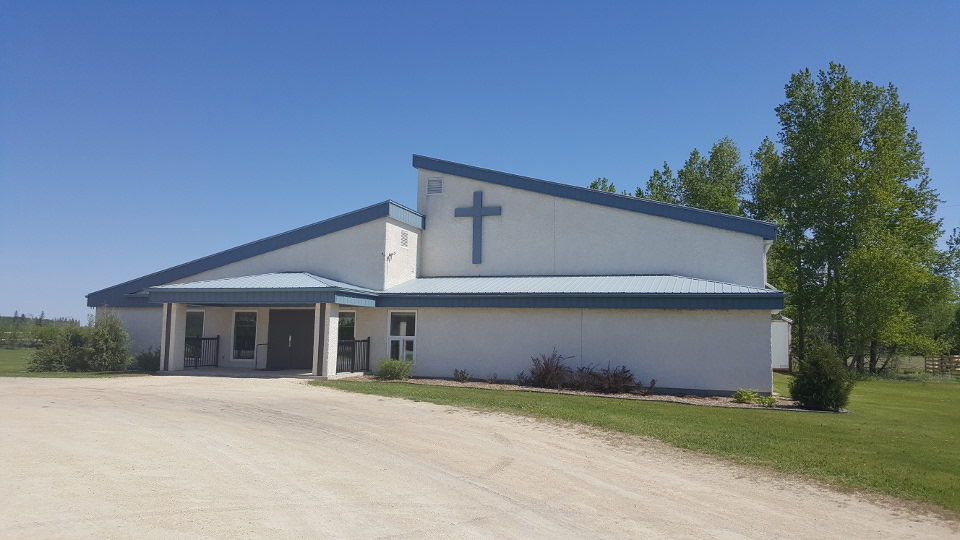Who are we?
Arborg Christian Fellowship started in July 1977 as a Sunday school initiative by two ladies of the community (Mrs. Elnora Kroeker and Mrs. Rose Orbanski). Soon after this start, with the help from Village Missions Arborg Christian Fellowship started growing into the mature church it is today.
The Bible is our starting point
Arborg Christian Fellowship wants to be a Bible based church community. The Bible is God’s Word and all that it contains is still very relevant today. We as a church community want to use God’s Word as a support and foundation for our lives.
Growing Community
We want to be a church community, open to all people who want to follow Jesus Christ as their Lord and Savior, while joyfully and sincerely leaving space for each other to grow; growing in Faith, mutual fellowship, and number.
e are constantly amazed and we constantly rejoice about all the wonderful things God is doing in our lives and in our church community. He changes people, because the message and the Good News of what His Son has done for us is really transforming people’s lives.
We as members of His church worship and praise Jesus, while encouraging each other in our daily walk with Him.
What we believe
- the supernatural and plenary inspiration of the Scripture – that they are inerrant and
that their teaching and authority are absolute, supreme and final (II Peter 1:20,21, II
Tim. 3:15-17)); - the Trinity of the Godhead – God, the Father; God, the Son; and God, the Holy Spirit
(Gen. 1:26, John 1:1, I John 5:7, Matt 3: 16,17, Matt. 28:19, John 14:26); - the personality of God – the personality and deity of Jesus Christ, begotten of the
holy Spirit, born of the Virgin Mary, very God and very man; the personality of the
Holy Spirit (Matt 1:20-23, John 1:14, II Cor 13:14, John 14:26); - the resurrection of Jesus Christ – that His body was raised from the dead, according
to the Scriptures, and that He ascended into Heaven and sitteth on the right hand of
God as the believer’s Advocate (I Cor 15:4, Mark 16:19, Heb 7:25, John 20:19-28,
Heb 2:14-18); - the sinfulness of man – that all human beings are born with a sinful nature, are totally
depraved and need a Savior from sin (Gen 1:26,27, 2:15-17, Rom. 5:12, Rom.7:18); - the Atonement – that Jesus Christ became the sinner’s sacrifice before God and died
as the propitiation for the sins of the whole world (I Cor 15:1-4, Rom 5); - the necessity of the new birth – salvation is by grace through faith and not of works;
saving faith will maintain good works in the life of the believer (Eph 2:8&9, John
3:14-18, Rom 6:23, Titus 3:5, Col 1:14); - the literal resurrection of the body, both of the just and of the unjust (I Cor 15, Rev
20:6, John 6:40, Acts 24:15, I Thess 4:16); - the everlasting blessedness of the saved, and the everlasting punishment of the lost.
(Luke 16:19-31, John 5:28,29, Rev 20:12-15); - the evangelization of the world – the mission of the Church in this age is to preach
the Gospel to every person, and to mature the saints (Matt 28:18,19, Mark 16:14-
20); - the second coming of Christ, according to the Scripture (Acts 1:11, Titus 2:11-14,
John 14:1-3); and,
Ordinances – that there are only two ordinances for the church regularly observed in the
New Testament in the following order:
- Water Baptism of the believer in or with water, whereby (s)he obeys Christ’s
command and sets forth his identification with Christ in His death, burial and
resurrection (Matt 28:19, Mark 16:16, Acts 8:38, Rom 6:3, Col 2:12) - The Lord’s Supper, which is the memorial wherein the believer partakes of the
two elements: the bread and the cup, which symbolize the Lord’s body and shed
blood, proclaiming His death until he comes. (I Cor 11:23-34)

